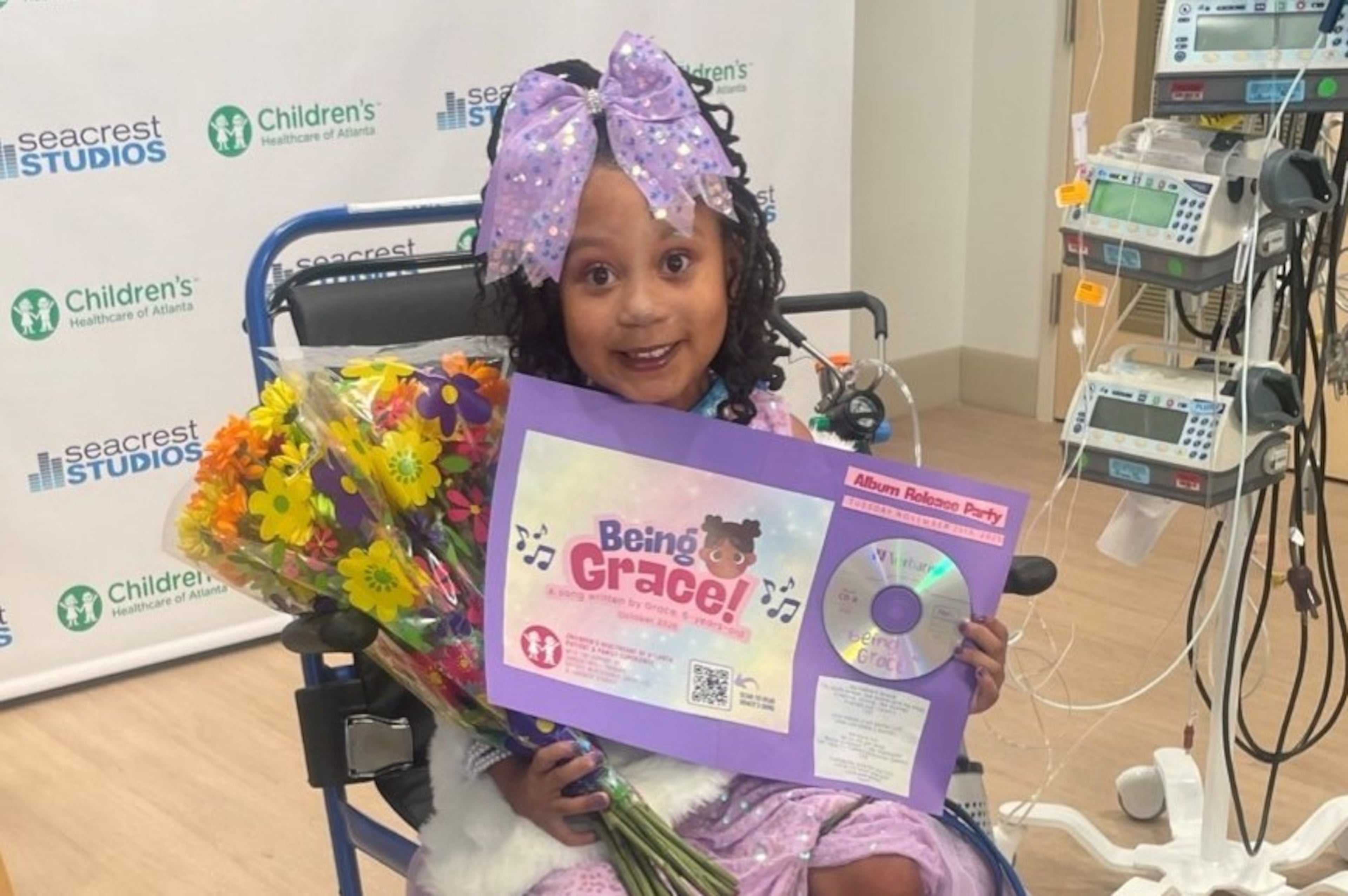Throwing a one-two punch at Parkinson’s

With a punch here and a jab there, Nausheen Quraishy and Frank Ryan are boxing their way back to better lives.
Quraishy is the instructor, affectionately known as “Nausheen, the machine,” or “Nausheen, the machine, the dopamine queen.” She transforms exercise into a lifeline at Wellstar Health Place on the campus of Kennestone Regional Medical Center in Marietta.
Her Rock Steady Boxing classes build strength and community for Ryan and other patients with Parkinson’s disease, a degenerative disorder caused when the chemical dopamine drops to low levels in the part of the brain that controls movement.
“I am alive, I believe, because of this program and Nausheen,” Ryan said.
Quraishy also credits the program for improving the quality of her life after she experienced a health crisis of her own.
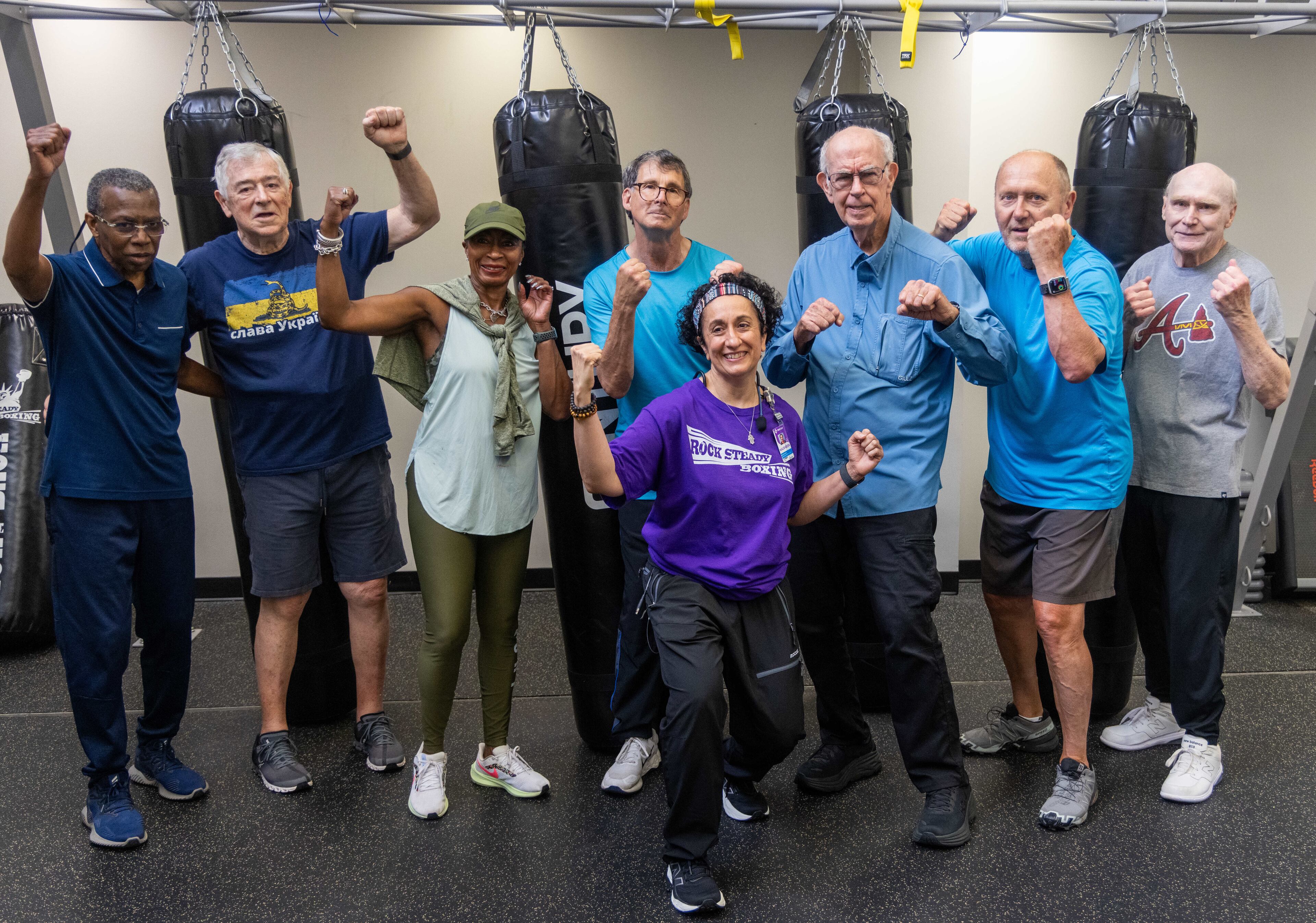
Two brains, two battles
Eighteen years ago, Quraishy, then 36, was home alone when she heard a twig snapping. The sound came from inside her head.
Doctors said she had bleeding on the brain from a ruptured arteriovenous malformation (AVM), an abnormal connection between arteries and veins, a condition usually present from birth. The exact location of the brain bleeds stumped doctors for several months. Finally, Quraishy found a neurologist who was stunned that she could even speak and promised to find her answers.
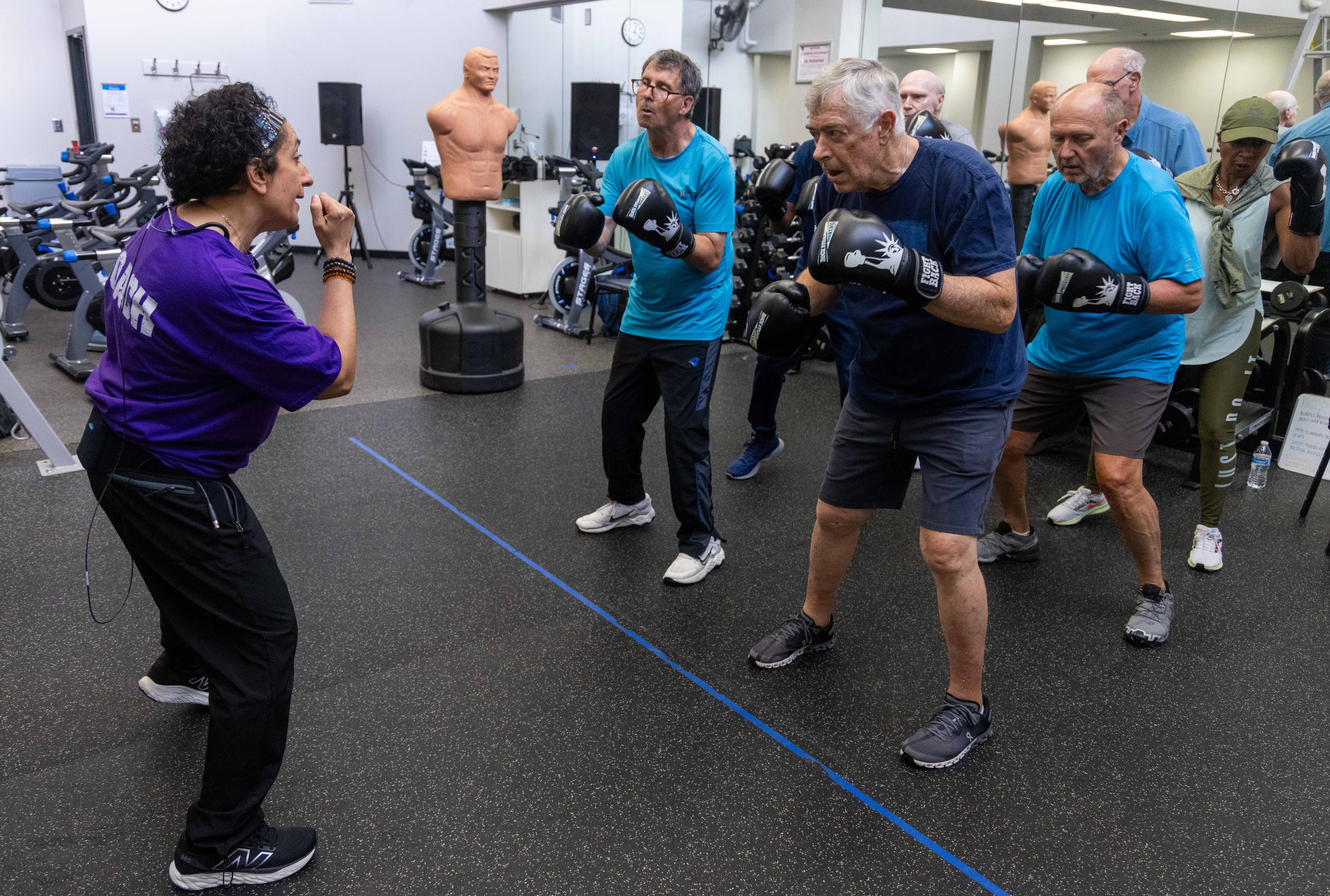
“He said: ‘I believe God’s not done with you. He wants you here,’” Quraishy recalled. “That was very powerful.”
The doctor delivered, performing a successful gamma knife radio surgery to make the repairs.
The brain bleed was better by 2008. Quaraishy was not.
“I went from a fully functioning woman, mother and wife to sometimes not remembering my name, what state I was in, or whether I was in Miami (her previous residence) or Atlanta,” she said.
Her memory of much of her life is gone, although she can remember the first time she held her newborn son Amir. She begged nurses and doctors to save her life, not for her but for the then 3-year-old. Her husband would, over time, be able to cope if she died. But Amir was just a baby and would need his mother, she told them.
Quraishy had to learn to walk again. Family and friends helped. Her husband, Cliff, encouraged her, walking beside her up and down the driveway of their Marietta home and introducing her to a gym.
“I was never a woman who worked out a day in my life,” she said. “I had started to fight back.”
She became a gym regular, though she would often end up crying in the ladies’ room, her pain was so great.
“I’d be telling God: I’ve got to beat this,” she said. “I’ve got to bounce back.”
A few years later, with encouragement from a gym manager, she became a certified trainer through Rock Steady Boxing. Instructors urged her to consider teaching the Rock Steady Boxing class, telling her she had “a natural gift. People are really drawn to you.”
“I find that’s my life’s purpose to serve others,” Quraishy said. “I let those who have lost their belief borrow mine until they find theirs. I get the struggle.”
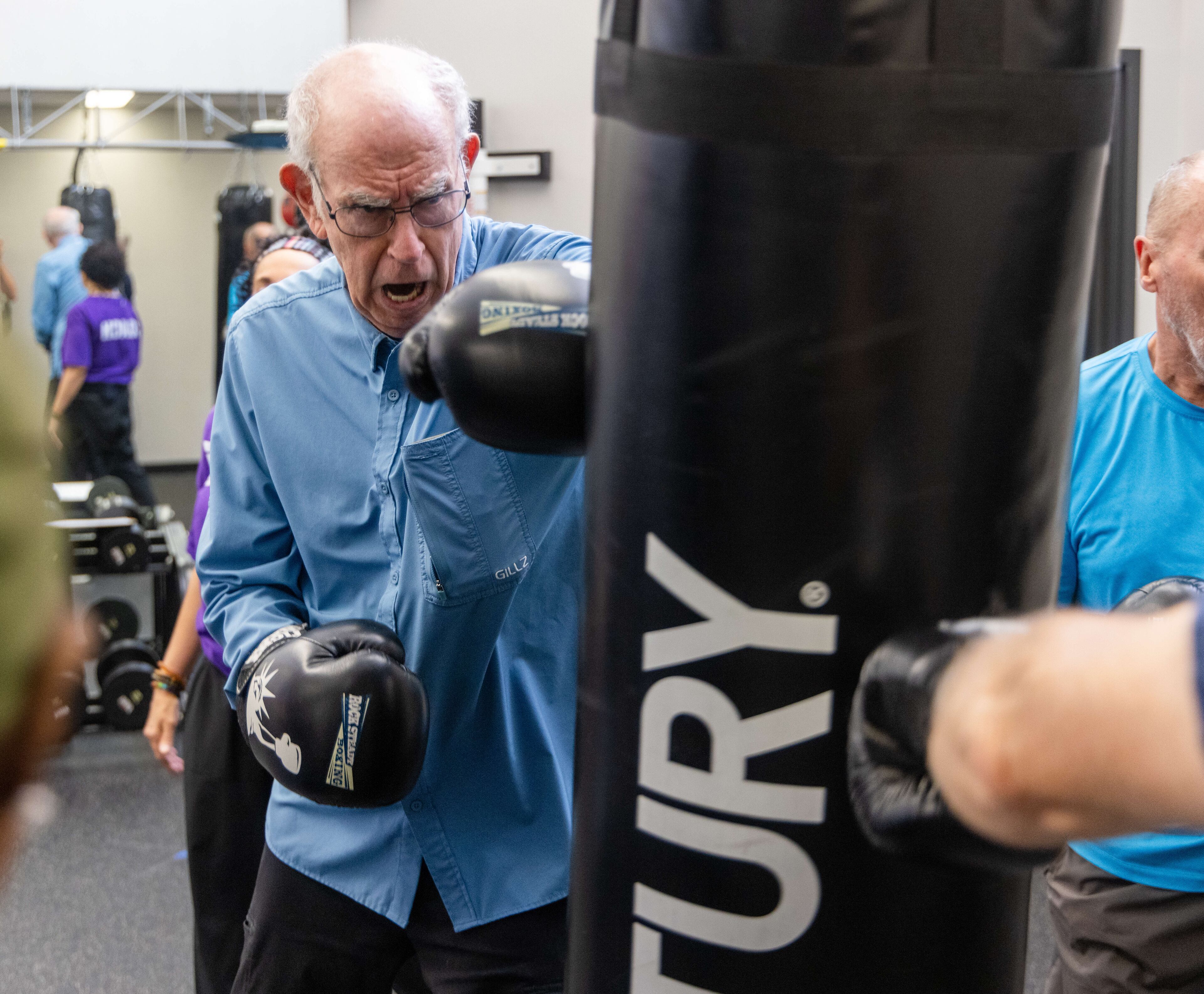
Frank’s story
Frank Ryan, 81, was diagnosed in 2015 with Parkinson’s disease after his wife noticed him shuffling across the floor one day. He said the problem was his shoes. They were too heavy. But a lighter pair didn’t help.
He went to his primary care physician, who referred him to a specialist who made the diagnosis.
“When something like this hits you, you can either fight it or live with it,” Ryan said. “I chose to fight.”
Ryan thought that physical activity could help, so he joined a gym.
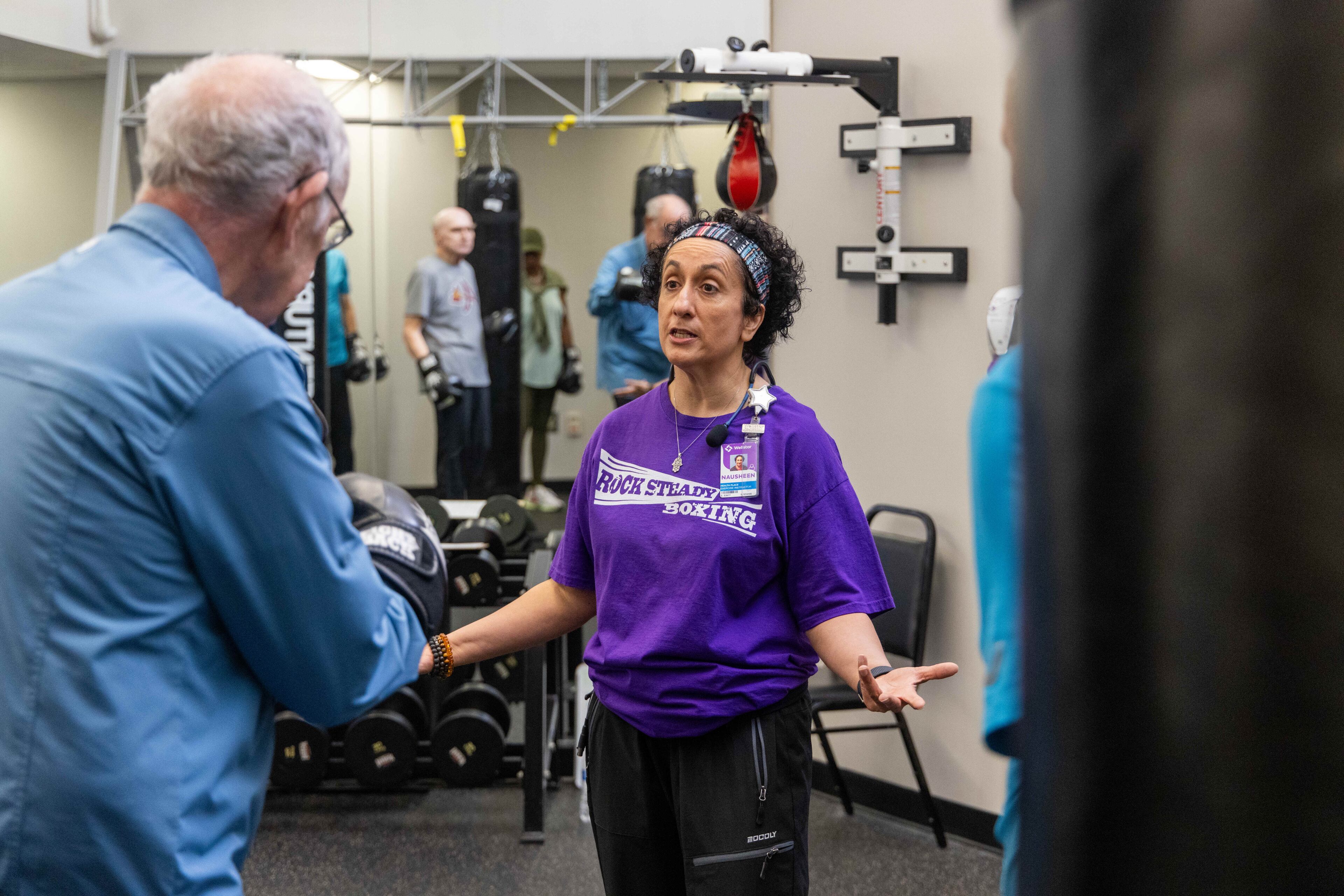
In 2019, a physician’s assistant suggested he check out a new Wellstar program, Rock Steady Boxing. Nausheen Quraishy had just been hired as one of the instructors.
Rock Steady Boxing was founded in Indianapolis in 2006 to help people with early-onset Parkinson’s disease. It later expanded to welcome anyone with Parkinson’s. Affiliate gyms are all across the nation and world, including five in Georgia: Watkinsville, Ringold, Rome, East Cobb and Wellstar Health Place.
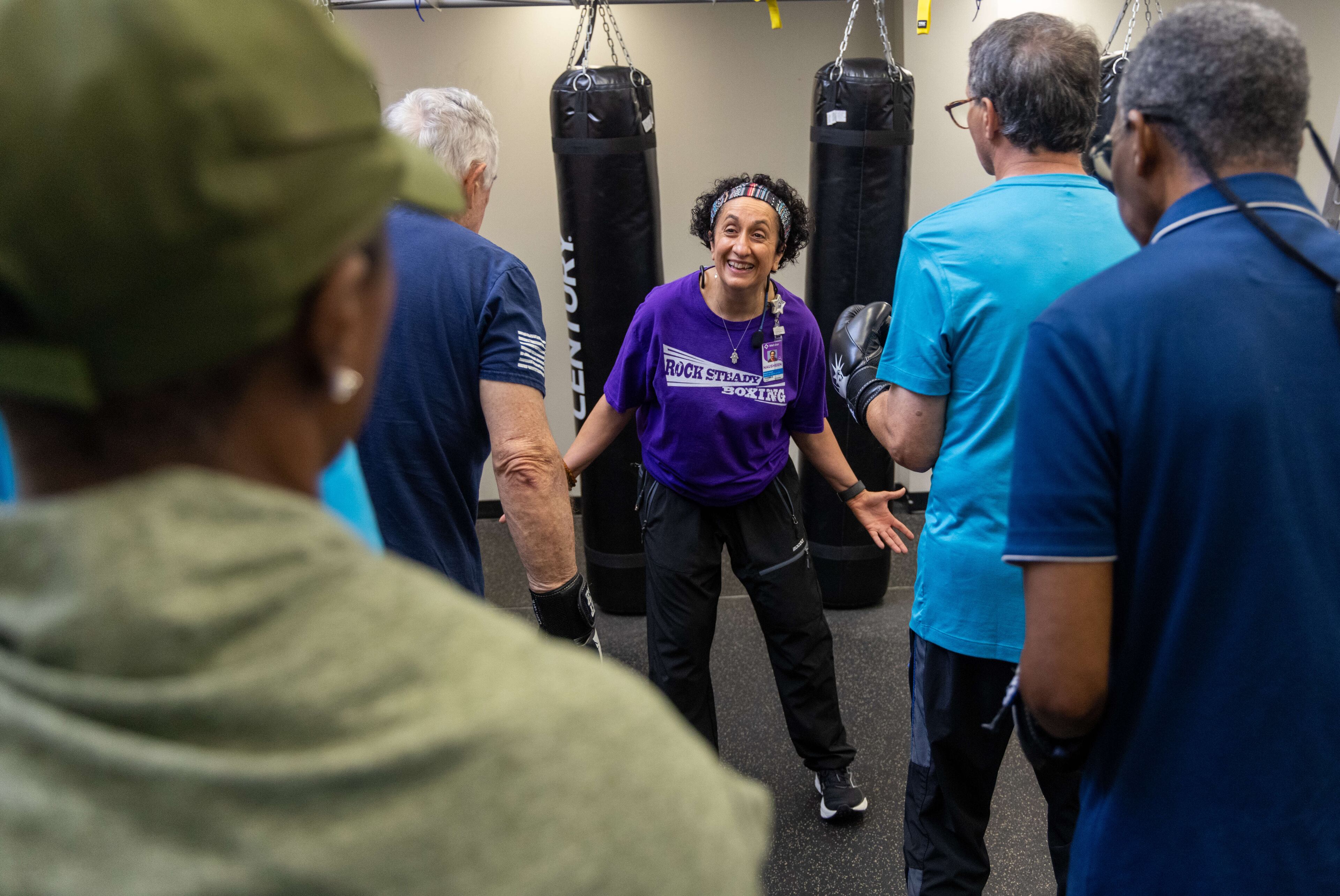
The program is open to people with a doctor’s diagnosis of Parkinson’s. Membership is not covered by insurance, but some insurers reimburse class participants on a case-by-case basis.
Parkinson’s is the second most prevalent degenerative brain disease after Alzheimer’s. The Parkinson’s Foundation estimates that nearly 1 million Americans are living with the disease and that about 90,000 new cases are diagnosed each year. Researchers are still searching for a cure.
Ryan, who faithfully attends class four days a week, believes the program and instructor Quraishy have helped slow the progress of his disease.
“I can walk and still dance,” he said. He also plays tuba in the 100-piece Cobb New Horizon Band, which he joined before his diagnosis. And he talks as well as he does because Quraishy demands students speak up in class. Otherwise, speech can become a problem.
Rock Steady is Ryan’s “community away from home,” he said. “It’s a place where I can go and be myself and encourage other people who are suffering from what I’m suffering from. We encourage each other.”
Ample data shows that exercise improves the release of dopamine in the brain and aerobic activities improve cognitive function, said Dr. Jack Shen, a movement disorders neurologist with Wellstar Health System.

“The program is thoughtfully tailored with a regime of exercises for strengthening, balance, coordination and fine motor skills that participants can take home and use to benefit their everyday lives,” he said.
His patients share Ryan’s belief that the program also creates a sense of community. Each class is limited to 10 participants based on their skill levels, and many think Quraishy is the perfect teacher.
“She’s energetic, compassionate, resilient and uniquely driven, given her history,” Shen said.
Ryan calls her “demanding, inviting, inclusive and lots of fun.
“I love her,” he said.
Quaraishy said her students may come into class deflated, but they walk out “warriors and on fire.”
Early signs of Parkinson’s disease
- A tremor or shaking in your finger, thumb, hand or chin while at rest.
- Your handwriting has gotten smaller, and the words are crowded close together.
- Trouble smelling certain foods, such as bananas, dill pickles and licorice.
- Trouble sleeping to the point you are thrashing around in bed or acting out your dreams.
- Trouble moving or walking. Stiffness in your arms, legs, shoulders, or hips. Some people report that their feet feel like they are stuck to the floor.
- Difficulty moving your bowels without straining them every day.
- Your voice is very soft, or you sound breathy and/or hoarse, and that’s a change.
- You are not in a bad mood but are told you have a serious, depressed, or angry look on your face. This is often called facial masking.
- You feel dizzy when you stand up from a chair, or you faint, a sign of low blood pressure that can be linked to Parkinson’s.
- Your posture isn’t as straight as it once was, and you, your family or your friends notice you seem to stoop, lean or slouch when you stand
Source: Parkinson’s Foundation
More info
To learn more about Parkinson’s disease, go to parkinson.org
To learn more about arteriovenous malformation (AVM), go to the Mayo Clinic website, www.mayoclinic.org, diseases and conditions.
To learn more about the Rock Study Boxing program at Wellstar Health Place, go to wellstarfitness.org.
HELP US CELEBRATE EVERYDAY HEROES
The Atlanta Journal-Constitution is looking for inspiring Georgians – “Everyday Heroes” – who are making a difference, big or small, in their communities. Do you know someone who is going above and beyond to help others? Someone helping transform their communities? Someone whose acts of kindness brings out the best in all of us? We’d like to hear from you, and we need your help in celebrating these extraordinary Georgians. Please submit your nominations via email to Nicole.Williams@AJC.com.
